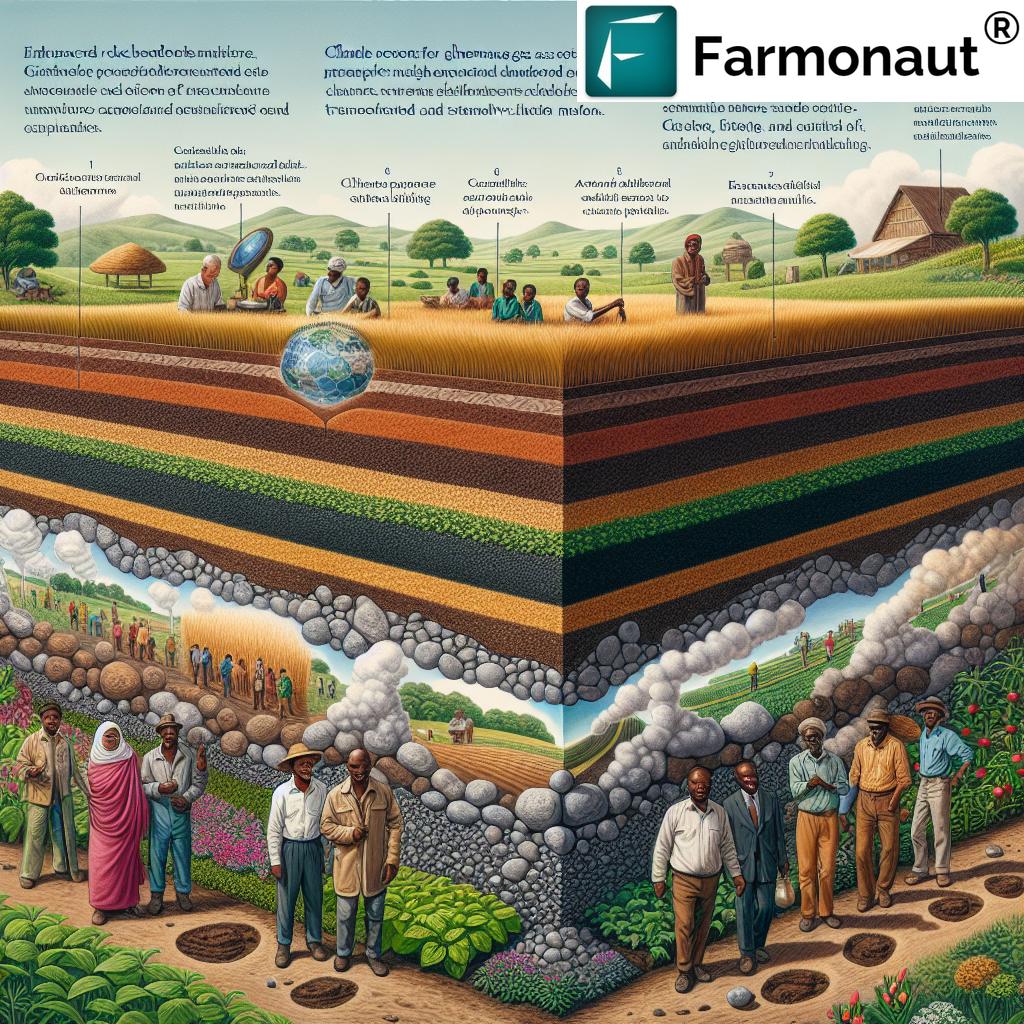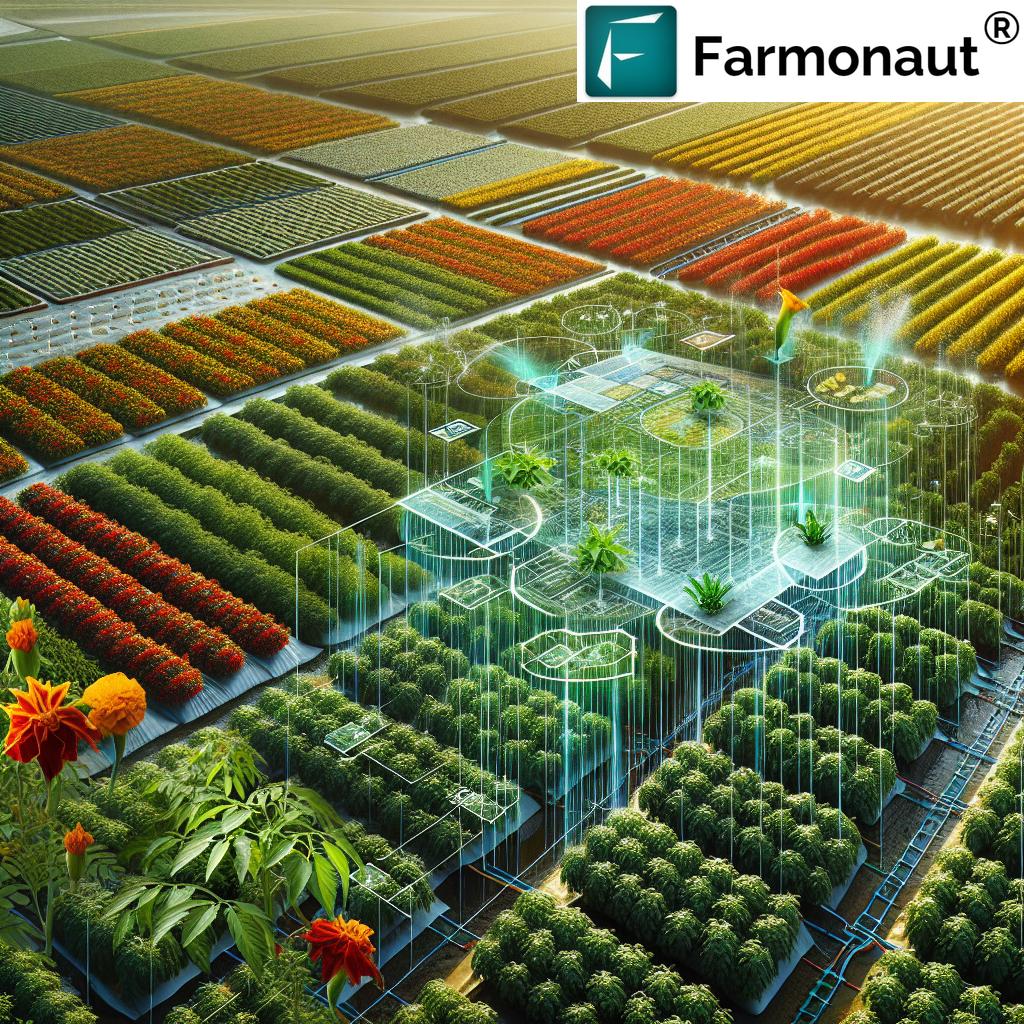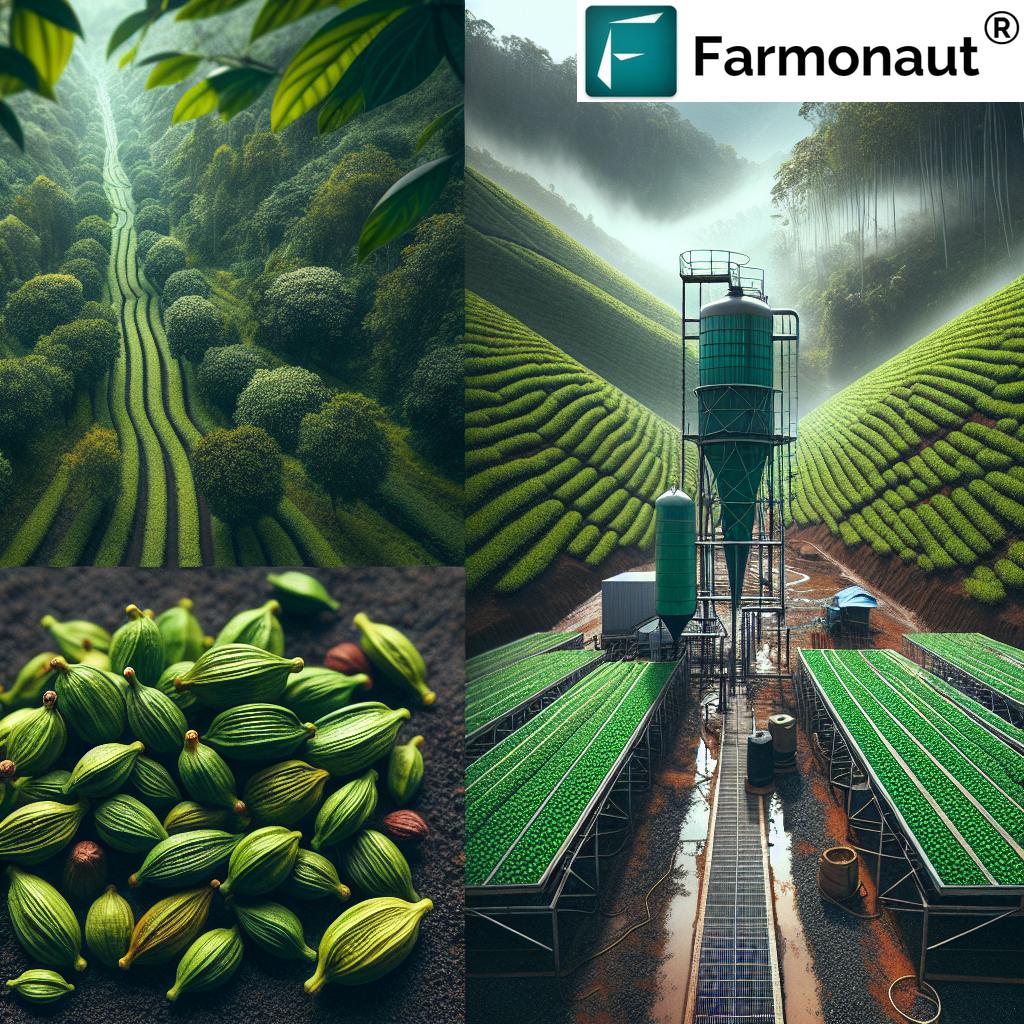Enhanced Rock Weathering Boosts Carbon Removal for India’s Farmers
Enhanced rock weathering is rapidly emerging as one of the most promising carbon removal solutions for farmers across India. By accelerating the natural process of weathering using finely crushed basalt, we can remove atmospheric carbon dioxide, restore soil health, and provide substantial economic benefits.
“Enhanced rock weathering can remove up to 3.7 billion tons of CO2 globally each year.”
Introduction: Enhanced Rock Weathering and India’s Role in Carbon Removal
As our planet faces increasing climate challenges, the urgency for efficient carbon removal solutions is higher than ever. The XPRIZE Carbon Removal competition recently recognized a significant breakthrough spearheaded from London and being implemented in India, where startups like Mati Carbon are showcasing the practical use of enhanced rock weathering. By applying finely crushed basalt over agricultural lands, this highly durable solution not only fast-tracks atmospheric carbon dioxide removal (CDR) but also delivers remarkable agronomic and economic benefits to smallholder farmers.
With carbon dioxide emissions accounting for more than two-thirds of all anthropogenic greenhouse gas emissions, removing these gases from the Earth’s atmosphere and oceans is paramount. The XPRIZE’s recognition validates the science and promotes building the infrastructure needed for scalable climate resilience across developing economies including Tanzania and Zambia.
Understanding Enhanced Rock Weathering: The Science Driving Carbon Removal Solutions
Enhanced rock weathering employs a natural process that is fundamental to the Earth’s climate system. Here, we spread finely crushed basalt—a silicate-rich volcanic rock—across agricultural lands. When basalt interacts with rainwater and soils, it chemically reacts with CO2 from the atmosphere, forming stable carbon compounds that are washed into the oceans, thus removing atmospheric carbon dioxide permanently.
- Basalt application on farmland accelerates the time needed for natural weathering and boosts global greenhouse gas emissions reduction.
- This durable solution draws down carbon while replenishing soils with minerals invaluable for crop health.
How Enhanced Rock Weathering Works: Accelerating a Natural Process for Permanent Carbon Capture
Let’s break down the process:
- Basalt Crushing: Basalt rocks, abundant and rich in minerals, are mined and finely crushed to increase surface area and reactivity.
- Spreading Over Farmlands: This crushed basalt is then spread across agricultural lands at the beginning of the cropping season.
- Chemical Reaction: In the presence of rainfall and humid conditions, basalt reacts with CO2 in the atmosphere, forming stable carbonates and other minerals.
- Permanently Draws Down CO2: The result is permanent carbon capture as these compounds are leached into water bodies and sequestered for thousands of years.
This cycle not only achieves effective greenhouse gas removal but also rejuvenates soils by restoring nutrients like calcium, magnesium, and potassium that contribute to healthy crop growth.
“Indian smallholder farmers could increase income by 15% through scalable enhanced rock weathering practices.”
India’s Potential for Carbon Removal Through Weathering: A Global Catalyst
With over 150 million hectares of arable land and more than 100 million smallholder farmers, India offers unparalleled potential for the adoption of enhanced rock weathering as a scalable climate resilience strategy. The sheer scale of agricultural lands means even modest per-hectare rates of carbon removal can translate into immense results nation-wide and inspire climate action across developing economies worldwide.
Mati Carbon’s model, celebrated in London and lauded in the global competition, demonstrates that by engaging thousands of farmers in India, Tanzania, and Zambia, we can employ a locally-led, scientifically robust, and economically inclusive approach. This strategy directly empowers those who are least responsible for climate change but most vulnerable to its consequences.
Comparative Impact Table: Enhanced Rock Weathering Benefits for Indian Smallholder Farmers
| Benefit | Estimated Value/Impact | Description/Notes |
|---|---|---|
| Carbon Removal Rate (tons CO₂/ha/year) | 1.2–4.0 | CO₂ permanently removed by 1 hectare of basalt-treated farmland annually |
| Reduction in Greenhouse Gas Emissions (%) | 10–20% | Decrease in overall GHG emissions per hectare via weathering and soil restoration |
| Increase in Farmer Income (INR/ha/year) | ₹8,000–12,000 (~15% boost) | Yield increases and lower input costs translate to substantial income improvements |
| Impact on Soil Health | 20–30% yield improvement | Restores minerals, improves soil texture and microbial diversity |
| Scalability Potential | National and Global (100M+ farmers) | Cost-effective, replicable across diverse geographies and scales |
Climate Resilience, Greenhouse Gas Emissions Reduction & the Power of Weathering
Enhanced rock weathering offers a rare win-win in climate action in agriculture. It substantially reduces greenhouse gas emissions and also improves soil structure and fertility. These outcomes are vital in the context of India’s smallholder-dominated agricultural model, where climatic shocks hit degraded lands and financially strained farmers the hardest.
- Extreme weather events—from droughts to floods—have a disproportionate impact on smallholders with limited infrastructure and financial resources.
- Fixing climate resilience through permanent carbon capture addresses both immediate agronomic risks and long-term sustainability in developing economies.
Benefits for Smallholder Farmers: Improving Income & Restoring Soil Health Naturally
At the heart of this solution lies our commitment to improving smallholder farmer income and restoring soil health naturally. Free basalt application on farmland not only removes atmospheric CO₂ but also increases yields by an average of 20%. This translates to empowered farming communities who can pay off debts, invest in better farm inputs, and build resilience against climate uncertainties.
- Income Boost: The enhanced output from rejuvenated soils means more crops can be sold, further buffers are available for financial hardship, and debts can be paid faster.
- Soil Rejuvenation: Basalt restores minerals lacking in degraded lands, leading to long-term soil health gains.
- Zero Cost to Farmers: The program is expressly built to require zero financial outlay from smallholder farmers, making it universally accessible.
- Climate Resilience: Improved nutrition, yield reliability, and carbon removal deliver an integrated response to climate threats.
For those with limited access to fertilizers or credit, enhanced rock weathering interventions are a lifeline—delivering both agronomic empowerment and planetary healing.
Farmonaut’s Technological Leap in Support of Climate Action in Agriculture
Leveraging satellite-based crop health monitoring, blockchain-based traceability, and AI-driven advisory, Farmonaut offers advanced, affordable precision agriculture tools to smallholder farmers worldwide. Our mission is to democratize access to real-time crop data, help optimize resource use, and drive sustainable productivity increases—all crucial for maximizing the benefits of enhanced rock weathering and carbon removal processes.
- Satellite-based monitoring allows us and our users to track vegetation health (NDVI), soil moisture, and crop stress at scale.
- AI-based advisory (like Jeevn) delivers custom recommendations on irrigation, fertilizer, and climate resilience.
- Blockchain-backed traceability (learn more) ensures transparent and trusted supply chains—critical for the credibility of CDR credits and sustainable agricultural products.
- Carbon footprinting tools (read about our carbon footprint tracking platform) enable farms and agribusinesses to continually monitor and improve their climate impact.
Through Farmonaut, every farm—big or small—can participate in climate-smart agriculture and unlock new economic opportunities.
Scaling Permanent Carbon Removal in Developing Economies: The Road Ahead
The XPRIZE Carbon Removal grand prize, backed by the Musk Foundation, is a powerful validation and catalyst for scaling this climate action model not only in India but also in other developing economies. Winning teams like Mati Carbon will use new capital and global attention to build out the infrastructure and science needed to transition hundreds of millions of smallholder farmers to carbon-negative, climate-resilient agriculture.
- CDR credits are being used to support and sustain these locally led models of climate intervention, bringing in new funding streams for farmers.
- The end overarching mission: economic empowerment of smallholder farmers while protecting the planet.
Practical Implementation of Enhanced Rock Weathering in Indian Agriculture
For farmers and agricultural stakeholders across India, successful implementation of enhanced rock weathering requires the right blend of scientific rigor, local customization, and access to scalable technologies. Here’s how we can make it work:
- Basalt Sourcing and Logistics: Identify local quarries supplying compatible basalt to minimize both cost and emissions from transportation.
- Precision Spreading: Employ mechanized spreading tools (tractors, spreaders) for even and cost-effective coverage, or leverage local labor where machinery is unavailable.
- Monitoring and Verification: Use Farmonaut’s satellite-based farm management app to monitor sites, ensure correct application rates, and track success over time.
- Farmer Incentivization: Offer direct income boosts or link CDR credits to farm income for local empowerment.
Scale and replicability are ensured by these best practices, along with real-time carbon footprinting to quantify impact.
Enabling Farmers with Satellite-Based Insights: The Farmonaut Advantage
Satellite technology is a gamechanger for the scale-up of carbon removal and enhanced rock weathering practices. With Farmonaut’s advanced multispectral monitoring, farmers and agri-entrepreneurs can:
- Visualize and assess field health pre/post basalt application using NDVI and other indices.
- Track soil moisture & vegetation changes from basalt-driven recovery.
- Utilize AI-based advisories for further optimizing resource use and maximizing the impact of weathering interventions.
- Benefit from real-time data accessibility via web, Android, or iOS platforms.
Satellite-based verification is also instrumental for crop loan and insurance schemes, reducing fraud, enabling better credit access, and de-risking sustainability investments for smallholder farmers.
The Future of Carbon Removal and Scalable Climate Resilience Strategies
As we move towards net zero, the intersection of science, policy, and digital innovation is shaping the future landscape of sustainable agriculture. Permanent carbon capture for developing economies isn’t just an environmental imperative—it’s a pathway to agrarian prosperity and resilience.
The XPRIZE-winning models and Farmonaut’s scalable technology together create a framework for:
- Replicable deployment across diverse geographies
- Cost-effective operation for both individual smallholders and large-scale projects
- Continual monitoring and impact validation for CDR credits and farmer incentives
- Upgraded infrastructure for rural areas, including digital access, agronomic advisory, and market integration
India can set a global precedent—delivering sustainable, equitable solutions that meet both ecological and socio-economic needs at scale.
Farmonaut Precision Agriculture Tools: Driving Value for Carbon Removal and Climate Action
Farmonaut stands at the forefront by integrating advanced technology for transformative impact in agriculture:
- Satellite-Based Crop Health Monitoring: Provides granular NDVI, soil moisture, and crop growth analytics to optimize every intervention—including basalt weathering.
- Jeevn AI Advisory System: Delivers personalized, real-time recommendations tailored to each farmer’s field, maximizing carbon removal potential while improving yields.
- Product Traceability via Blockchain: Builds consumer and buyer trust for sustainably grown products and validated climate credits.
- Fleet and Resource Management: Streamlines logistics for large-scale basalt delivery and farm operations.
- Carbon Footprint Tracking: Helps farms document and reduce their greenhouse gas emissions.
Delivering these services via browser, iOS, Android app, and API (explore our API) allows users to integrate Farmonaut’s actionable data into their farming systems directly. (see our developer docs for more).
Whether you are a smallholder, cooperative, government agency, or a large agribusiness, Farmonaut provides a cost-effective, scalable model to achieve higher productivity, traceable sustainability, and measurable climate action.
Farmonaut Subscription Plans: Flexible, Affordable, and Scalable for All
Choose the right plan for your farm, cooperative, corporation, or agency. With robust analytics, AI advisory, and carbon-tracking modules, our platform fits every scale and budget.
FAQs: What Farmers Need to Know About Enhanced Rock Weathering and Carbon Removal
Q1: What exactly is enhanced rock weathering?
A: Enhanced rock weathering refers to spreading finely crushed basalt over farmland to accelerate the natural chemical reactions that capture and remove atmospheric carbon dioxide (CO₂) permanently from the air. This process also enriches soil health and can increase yields.
Q2: How does basalt application on farmland increase income?
A: By restoring key minerals and improving soil structure, yields can increase by 15–30%. Better harvests mean more marketable produce and higher income, while the method often costs farmers nothing.
Q3: Is enhanced rock weathering safe and scalable?
A: Yes. The process relies on natural rocks and reactions already occurring in the environment, simply accelerated for greater impact. With India’s extensive agricultural lands, scalability is limited only by logistics, which Farmonaut’s tools can help address.
Q4: How can Farmonaut support farmers participating in carbon removal programs?
A: Farmonaut provides satellite-based monitoring, AI advisories, carbon tracking, and supply chain traceability, all via a user-friendly app or API. These tools allow farmers and organizations to participate, verify, and benefit from scalable climate resilience strategies.
Q5: What is the role of API and subscription services in precision agriculture?
A: APIs and subscriptions let users access real-time satellite weather, crop health, and environmental data directly into their farm management apps or business platforms, enabling cost-effective, data-driven agriculture at any scale.
By harnessing enhanced rock weathering and integrating powerful digital tools like Farmonaut, India’s farmers and the world’s agri-communities can secure a sustainable, prosperous, and climate-resilient future for all.













